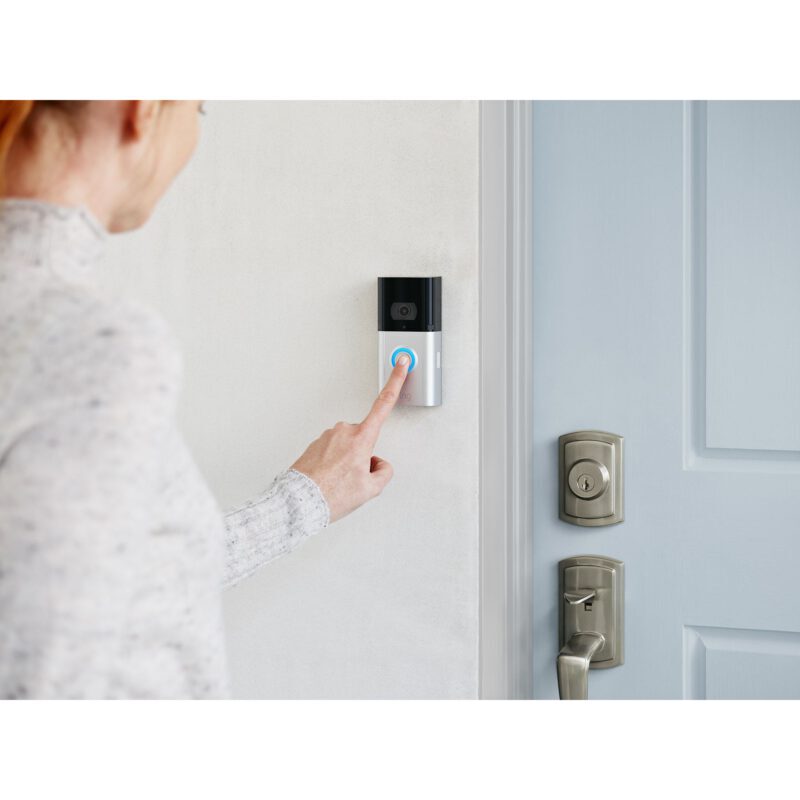Many of us have given up our right to privacy in the pursuit of making our lives more efficient. Sure, we could use a VPN to browse anonymously and avoid all those nasty trackers looking to siphon off some sweet marketing data, and many people do, but when the checkout page appears, it makes it so much harder to execute your impulse purchase when your card information isn’t saved.
The privacy battle has largely been willingly forfeited as we opt for instant gratification over a secure device. But, everyone has an individual line in the sand that crosses the border from convenience to violation of liberty.
Amazon Inc., provided Ring doorbell footage to law enforcement 11 times this year without the user’s permission. A letter from Amazon to Congress disclosing the fact was made public Wednesday by U.S. Sen. Edward Markey. The Massachusetts Democrat sent a separate letter to Amazon last month questioning Ring’s surveillance practices and engagement with law enforcement.
Unilateral acts like this by tech giants cross that invisible line in the sand for many citizens, raising civil liberty concerns about its video-sharing agreements with police departments across the country.
Unilateral Authority
Amazon acquired Ring in 2018, giving the company full authority over how information collected by the video doorbell system is used. Similar to the terms of service of many social media companies, Amazon states Ring Doorbell data belongs to its owners, but Amazon can use that data in whatever way it sees fit.
Ring previously stated it will not share customer information with law enforcement without a user’s consent, a warrant, or unless it is “an exigent or emergency” circumstance. The 11 videos shared this year fell under the emergency provision, according to Amazon’s letter.
Just because Ring said it will not share customer information with the police unless required to do so by the previously stated circumstances, does not mean it can’t. It simply chooses not to, like a benevolent dictator chooses not to execute half of a state’s population.
But with the onslaught of tech services available and consumed, who has time to read the privacy policy?
The Fine Print
Under the “How We Use The Information We Collect” section of Ring’s privacy notice, it states it will “protect against, identify and prevent fraud and other criminal activity, claims and other liabilities; and comply with and enforce applicable legal requirements, relevant industry standards and policies, including this Privacy Notice and our Terms of Service.”
Some prior requests from law enforcement have raised concerns about how police might be attempting to use Ring footage. Last year, the non-profit digital rights group Electronic Frontier Foundation reported the Los Angeles Police Department requested Ring footage of Black Lives Matter protests in 2020, according to time.com.
In addition, Ring, and its parent company Amazon, sells personal data to the highest bidder. According to Ring’s privacy notice, “We do not sell or otherwise share personal information about you except as described in this Privacy Notice. We may share your personal information with (1) our affiliates and subsidiaries and (2) our service providers who perform services on our behalf, such as marketing, customer service, order fulfillment and data analytics and storage. We do not authorize our service providers to use or disclose your personal information except as necessary to perform services on our behalf or comply with legal requirements. We also may share personal information with our business partners (1) with whom we jointly offer products and services; (2) to the extent you use Works With Ring to connect to third-party products or services; and (3) for payment processing and fraud prevention purposes.”
In short, Ring does not share personal data, except with all of the entities outlined in its privacy notice — which is a substantial list.
The Larger Trend
The latest scandal concerning Ring plays into a larger narrative in which Amazon is being scrutinized for its methodologies in the marketplace.
Amazon has been in Congress’ crosshairs as of late due to its ecommerce business, which some lawmakers argue is undercutting merchants that sell on its platform by making “knock-offs,” or very similar products, and boosting their presence on its site.
In 2018, the ACLU reported Amazon’s Rekognition facial recognition software falsely associated 28 images of Congress members with mugshots in a criminal database, raising broader questions about bias in AI. The late John Lewis, a former Georgia House representative and noted civil rights leader, was one of the congress members falsely matched. Reps. Jimmy Gomez and Lewis issued a letter to Bezos following the ACLU’s findings.
Markey and several other Democratic lawmakers are now pushing for a bill that prohibits the use of biometric technology by federal agencies and tie federal grant funding to states and localities on the condition they put a moratorium on the use of such technology.










